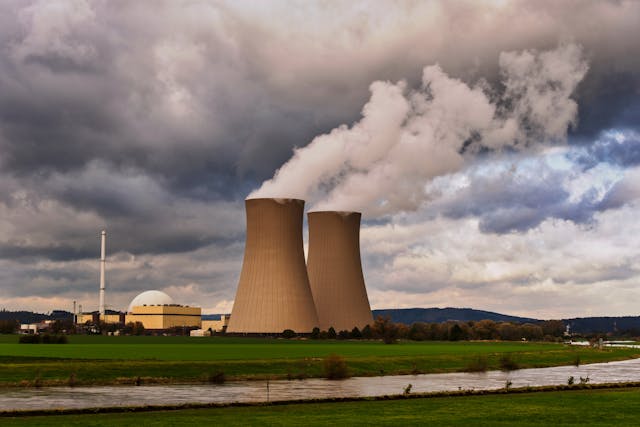Artificial intelligence has sparked a frenzy for nuclear energy as power demands get out of hand. It is emerging that tech giants are racing against time to sign deals with nuclear power providers to secure much-needed clean energy to power their power-intensive data centers. Amazon (AMZN) is one of the companies leading the spree, having inked a deal with a nuclear power plant on the East Coast.
Nuclear Power for AI
The power plant is to supply nuclear energy that will power a data center that enables Amazon Web Services. The deal comes on the tech giant integrating a series of generative AI features and models into its cloud computing unit that drives power consumption. The Amazon deal comes on the confirmation that tech giants have already engaged a third of the country’s nuclear plants to help power the data centers.
The availability of nuclear energy, which is much cleaner when it comes to carbon emission, is expected to spur the development of additional data centers needed to support the artificial intelligence revolution. Likewise, the strong demand for nuclear energy has driven some stocks higher in the market.
Shares of Constellation Energy are already up by more than 70% for the year, while Vistra is up by more than 120% as they continue to provide the much-needed nuclear energy. Even as the companies continue to offer the much-needed nuclear energy, experts are warning that the proliferation of data centers amid the AI revolution could put too much strain on the US power grid.
Meta Brazil Blow
Meanwhile, Meta (META) has suffered a significant setback in its push to train its artificial intelligence models. Brazil’s data protection agency has ruled that the social networking giant cannot use data from the country to train its AI systems. According to the agency, using data from the country will pose severe and irreparable damage to the fundamental rights of the affected parties.
The ruling is a major blow given that Brazil is one of Meta’s biggest markets for active users in its flagship apps. For instance, there are more than 100 million Facebook users in the country, and the population is about 203 million. It is not the first time that Meta has experienced strong resistance to its push to use people’s data to train its AI systems.
The company has hit a similar roadblock in Europe and has been forced to put plans on hold to feed people’s posts into its AI systems. It has since been forced to focus on the US market, whereby no national laws protect online privacy. Therefore, its AI models are primarily being trained using data from US users.
In a statement, Meta reiterated that it was disappointed with the two major setbacks in Europe and Brazil, insisting that its method of accessing and using people’s data complies with privacy laws. It has also reiterated that blockades are likely to hinder innovation and competition in AI development, which could lead to delays in bringing the full benefits of AI to people. Experts are already warning that the decision against Meta will likely force other companies to refrain from being transparent when using people’s data.


